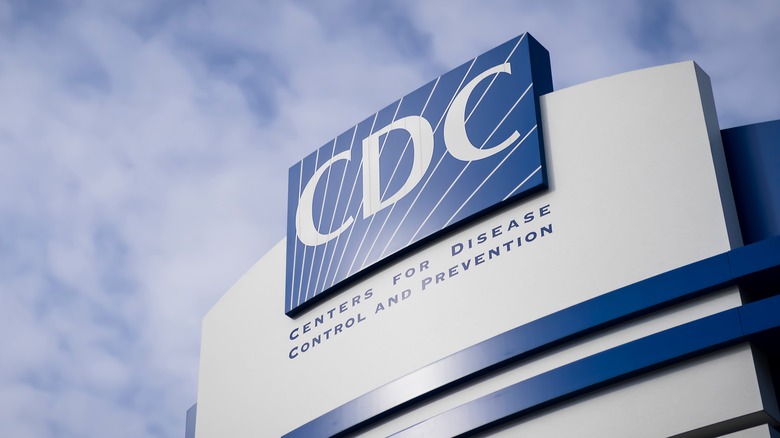Has There Ever Been A Monkeypox Epidemic Before?
Everyone has had some kind of brush with chickenpox at some point in their life. Typically people either receive a vaccine for it or they get it — usually during childhood — and they spend a few days itching as they've never itched in their lives. Chickenpox is a pox disease, a group of viral diseases that affect both humans and animals and typically result in skin and mucous membrane irritation, per Britannica.
Many diseases fall under this category, including other animal-named variations like cowpox, sheeppox, and horsepox. Meanwhile, smallpox, which ravaged humanity for centuries starting in or even before the 1600s, is part of the pox family as well, though it was declared eradicated by the World Health Assembly in 1980, according to the Centers for Disease Control and Prevention.
In 2022, another pox made headlines, and this time it was monkeypox. According to NPR, there have been reports of small monkeypox outbreaks in Europe, the United Kingdom, Canada, and the United States. The first reported case actually occurred in 2021 according to the CDC, and it was found in a U.S. citizen who had returned from a trip to Nigeria. Officials are still unsure how the more recent string of cases started, and there are growing concerns that the numbers could increase. While rare, this isn't the first monkeypox outbreak on record.
The 2003 monkeypox outbreak
Eighteen years before the most recent spate of monkeypox cases, another outbreak occurred in the United States (via The Journal of Infectious Diseases). In this instance, the virus appeared on the North American continent by way of the exotic pet trade.
According to the CDC, animals from Ghana that happened to be carrying the monkeypox virus (sometimes shortened to MPVX) arrived in the United States. The virus was first passed from the imported animals to other non-African species being kept in the same confines. Prairie dogs were eventually found to have been carrying the virus and then passed it along to humans, where 47 cases — both confirmed and probable cases — were reported and traced back to direct or indirect contact with MPVX-carrying prairie dogs.
During the outbreak of cases in 2003, there were no reports of human-to-human spread of MPVX. While it was determined that the indicted people had caught the virus from prairie dogs, the means through which the virus traveled were unclear. This was because while some of the cases involved someone who had been bitten by an infected prairie dog, others were merely in the same room as one. Those infected displayed a range of symptoms, with the most common being fever, chills, and lymphadenopathy, which (per the National Library of Medicine) is a term for swelling of the lymph nodes. Other less common symptoms that were observed included muscle pain, vomiting, and diarrhea.
What was done to stop the 2003 monkeypox outbreak?
According to the CDC, six types of rodents were identified as having originally brought the virus to the United States. They were promptly banned by the CDC and the Food and Drug Administration once the outbreak was discovered. This ban included rope squirrels, tree squirrels, African giant pouched rats, Brush-tailed porcupines, dormice, and striped mice. The ban was put in place in June 2003 and stayed in place until the FDA opted to do away with it in 2008, but the CDC ban on importing these animals remains in force.
The Center for Disease Control, as well as health departments in the states impacted by the outbreak, partnered with other federal agencies — including the Department of Agriculture and the FDA — to halt the spread of MPVX. They started doing large amounts of testing to keep tabs on the virus and also made smallpox vaccines and treatments available, since MPVX is part of the pox family of viruses. Prairie dogs were not allowed to be released into the wild at this time either, and the agencies kept a close watch on infected animals and people. They also worked to develop instructions on how healthcare workers, veterinarians, and others who had a higher chance of encountering MPVX cases should handle them.


